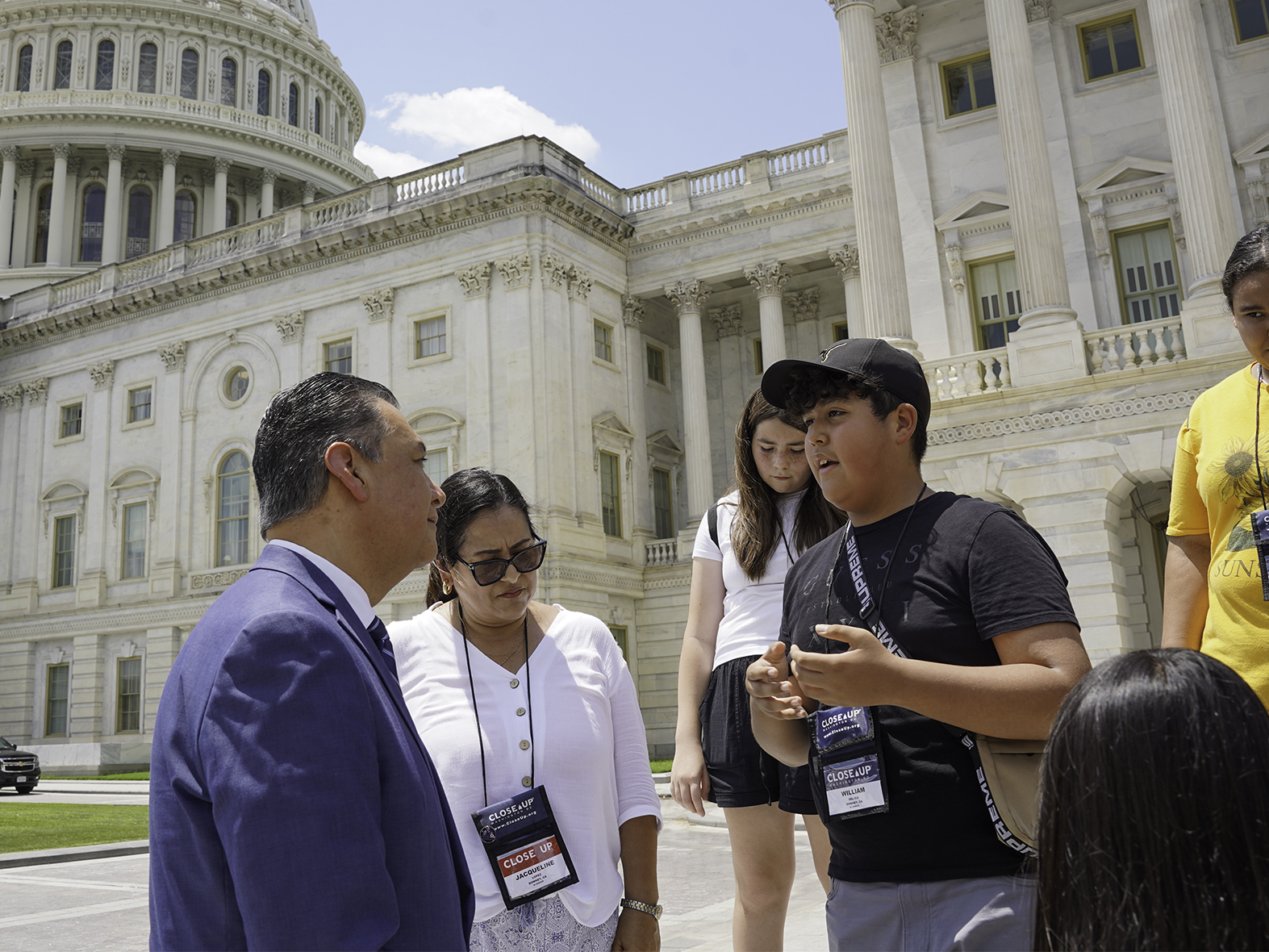
Migrant Students Gain New Perspective in ‘Close Up’ Experience
Sunday August 3, 2025
Each summer, thousands of tourists flock to Washington, D.C. to visit its historic landmarks. But for 51 middle school students from Kern County’s Migrant Education Program, this year’s visit meant something more: it was a chance to see democracy in action and to imagine themselves as part of it.
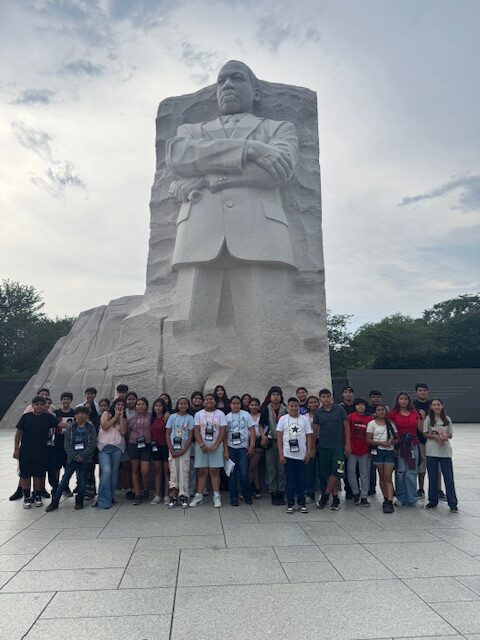
From June 21 to June 27, students participated in the Close Up Washington, D.C. experience, a national civic leadership program that KCSOS’s Migrant Education Program has been involved in for the last 27 years. For many of these students who had never been on a plane or left California, the trip was the culmination of months of hard work.
“These are students who often don’t see themselves reflected in government or leadership roles,” said Claudia Maldonado, a Program Coordinator for Migrant Education. “This program shows them they belong in those spaces.”
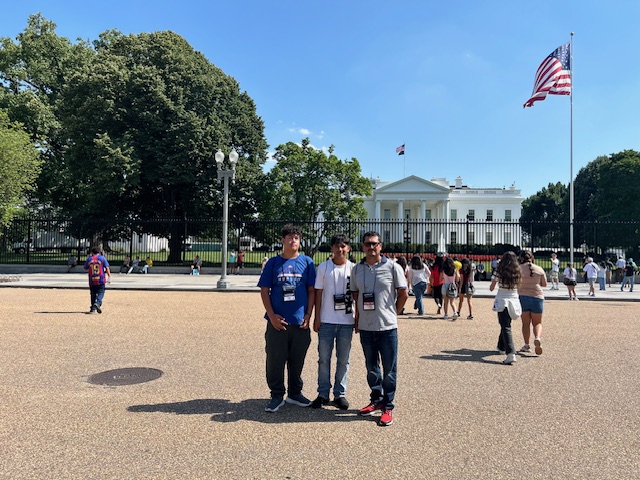
Migrant students visit historical landmarks in Washington D.C.
Throughout the school year, students attended 11 Saturday Close Up Academy sessions, where they explored topics such as the U.S. government, federalism, current events, and public speaking. These lessons are designed to help students understand the importance of their voices and how, even as young people, they can create positive change in their communities.
Participating school districts nominate students each year, prioritizing those who may benefit most from additional academic and leadership opportunities.
“This trip isn’t a reward. It’s a tool to help students change their own narratives,” said Maldonado.
While in Washington, D.C., students participated in civic workshops, simulated debates, and policy development activities alongside their peers from states like Arizona, Oregon, and Washington. They explored national monuments, visited the Capitol, and even met with Senator Alex Padilla, who took time to speak with the group and pose for photos.
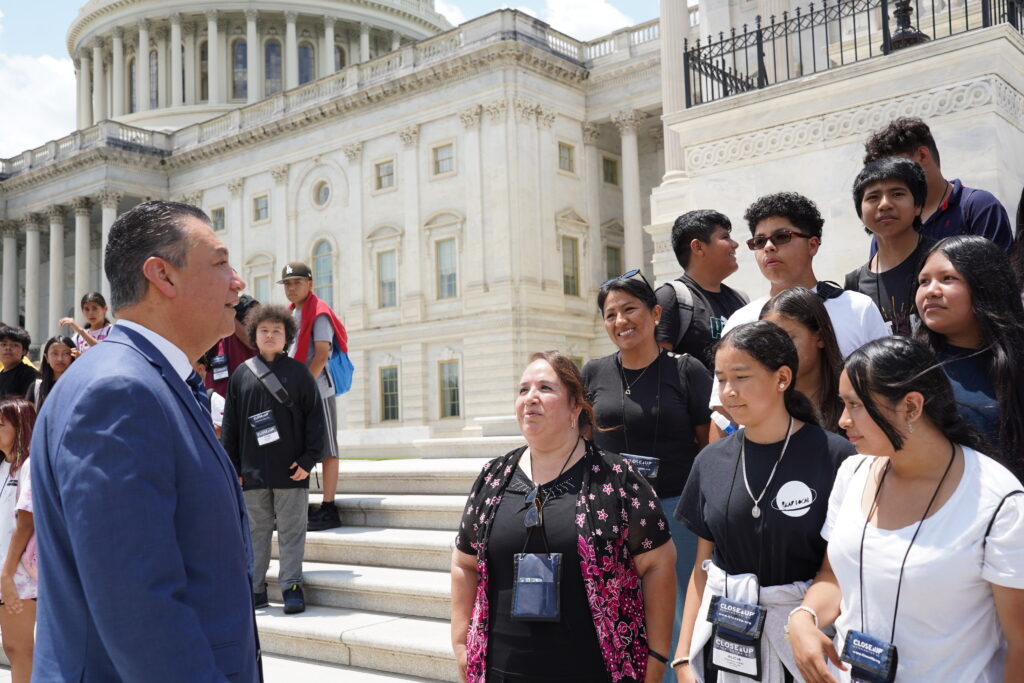
“We want students to see what life can look like beyond working in the fields. Close Up helps shift their mindset and shows them they can be future leaders.”
– Claudia Maldonado.
But the most powerful moments came from simply being together.
“Meeting other migrant students from across the country was really meaningful for our kids,” said Maldonado. “It shows them they’re not alone.”
That message hit especially close to home for Fernando Barrios, a teacher within the Fairfax School District and former migrant student who attended Close Up as a teen and returned this year as a chaperone.
“Close Up was a life-changing experience that showed me a different world,” said Barrios. “I never would have stepped on a college campus or participated in leadership activities without the Migrant Program. Meeting leaders through those trips helped me realize I wanted to pursue a career in education.”
Barrios said returning as a chaperone gave him the chance to share his story with a new generation of migrant students, many of whom shared his background. One student, who lived on the same street where Barrios grew up in Weedpatch, was surprised to learn that Barrios knew his teachers.
“He said, ‘You were just like me,’” said Barrios. “He was shocked that I knew where Weedpatch was.”
For Barrios, those connections matter.
“This program gives children the opportunity to aspire to be more than what they are destined to be,” he said. “The word ‘college’ wasn’t even in my vocabulary until I joined the Migrant Program. Now, I get to help other students see what’s possible.”
Many former migrant students like Barrios now return as camp instructors, keynote speakers, or chaperones for trips like Close Up, proof that the seeds planted through these programs continue to grow.
“In the end, it’s about showing them they belong,” said Maldonado. “Because once they believe that, everything else becomes possible.”
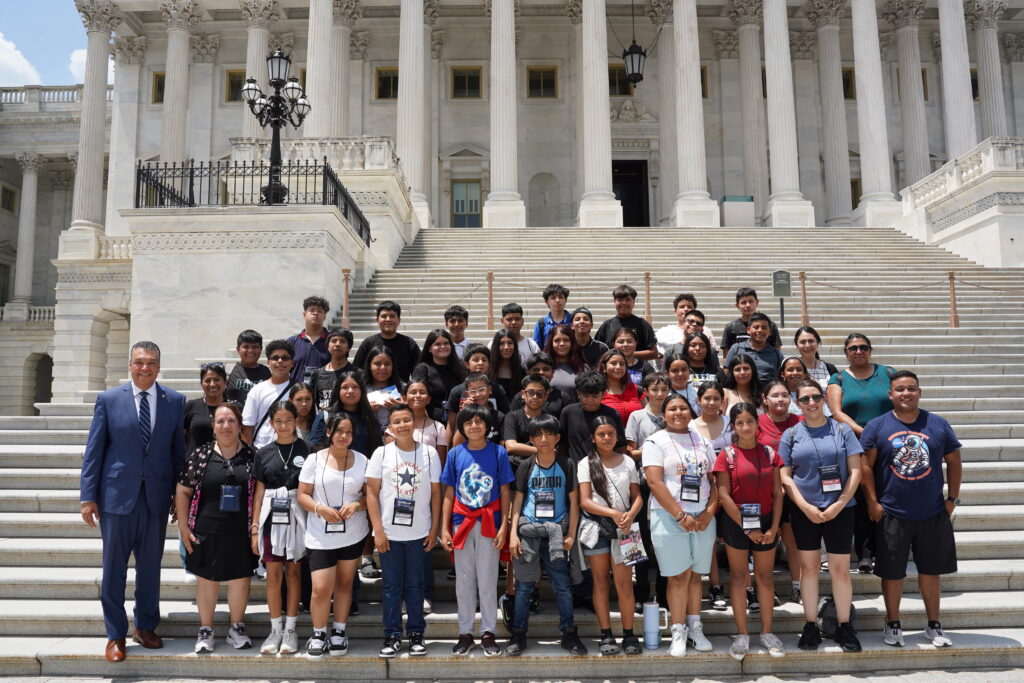
By Jennifer Bryan
Jennifer Bryan joined Kern County Superintendent of Schools in 2021 as a Communications Specialist. As a creative and motivated marketing communications specialist, she has a special knack for storytelling and content creation. Born and raised in Kern County, Jennifer has worked in major industries within the region such as agriculture and oil and gas before she made the transition to education.
